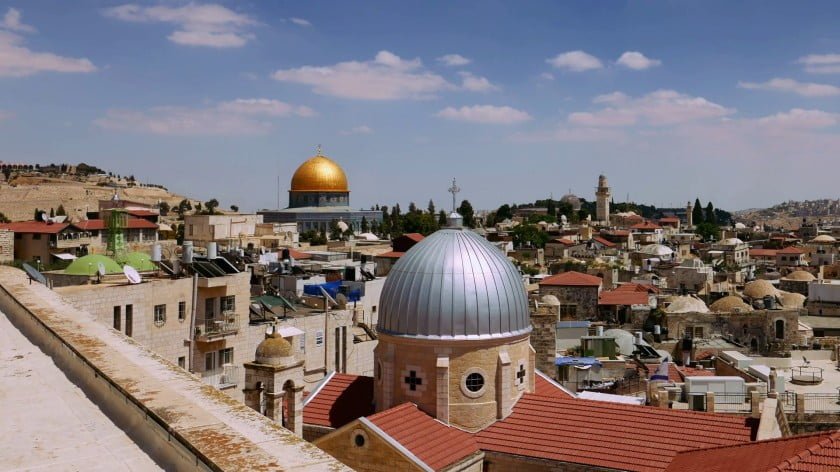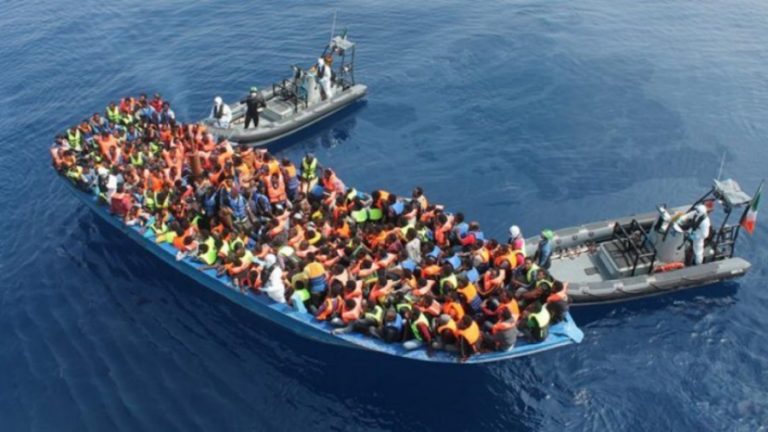The Elusive Middle East Peace
Subtle news sources coming on the grapevine allude to impending Middle East fresh peace talks. The end of the “War on Syria” will bring serious and realistic opportunities for Russian-sponsored peace talks, and there are direct and indirect hints and leaks made by certain officials here and there, hints and leaks which will become overt and obvious in the near future, culminating into news to the effect that new peace talks will resume.
The Arab/Israeli conflict seems intractable, and every time peace talks loom, we need to remember to examine the root of the problem and consider ways in which the deadlock can be surmounted.
Four decades after Kissinger pushed the USSR out of its position in the Arab/Israeli negotiation talks and made it law for America to defend Israel, the one-sided unparalleled superiority that America provided Israel with was not “good enough” to give Israel the “safe haven” that Zionism promised Jewish migrants with after the horrors of the Holocaust. If anything, the more aggression the state of Israel displayed and the more audacious America was in providing it with impunity, the more determined Palestinians became; and Hamas was the direct outcome of the joint Israeli/American bullying and the Palestinian despair that followed the supposed peace talks of the Oslo Agreement.
In retrospect, Kissinger, the man who gave “shuttle diplomacy” its name, has inadvertently created a deadlocked situation, and in doing so, America has done itself a huge disfavour in the unconditional support it provided Israel with over all those years and has turned itself into a de-facto pariah arbitrator; a mediator that axis-of-resistance Arabs, and all Palestinians in particular, do not trust. In doing so, it kicked itself out of the scene, paving the way for Russia to fill the void it left behind.
On the other hand, Russia is on talking terms with all parties in the Middle East and President Putin personally has good and strong relationships with Israel, Iran, Saudi Arabia, and of course Syria. Furthermore, Putin had all the reasons to sever ties with Erdogan, however the master of pragmatism managed to find a way to mend the rift without losing face, and even though Erdogan has not yet shown any credibility, Putin sees Turkey as a potential key player in the peace process in Syria.
Notwithstanding all of the above, all the American Russophobic rhetoric amounts to nothing, because America and Russia will always be on talking terms.
Briefly put, no entity other than Russia is potentially able to bring all Middle Eastern parties to the negotiation table, and the “hints” speak of such eventuality, come the end of the War on Syria; and this is what Putin wants.
In the meantime, relevant parties will have to accept to come to the negotiation table, and be prepared to negotiate.
It was easy back in 1948 for the Arabs to carry the “push them back” slogan; referring to sending Jewish migrants back to where they came from. More than seven decades after the establishment of Israel, if the Palestinian cause were to maintain the moral upper ground, this “ambition” can no longer apply to second and third generation Jews who were born in the land their forefathers migrated to; albeit those forefathers migrated and settled illegally. By the same token, and most importantly, Palestinians cannot be expected to take the moral upper ground alone without a reciprocal agreement that grants them the long-awaited justice; including the right of return.
And as negotiations mean to give and take, it is interesting to note that the English term is said in this sequence; give and take, rather than take and give, because if a negotiator does not begin with giving, he will not be able to take.
This will be the sticking point because religious hardliners on both Arab and Israeli sides have perfected the art of each claiming to be the rightful and exclusive owner of the Holy Land. As a matter of fact, it was only when the religious spin replaced the national argument of the Arab struggle that a secular fight was taken to theocratic camp and Zionism was, to some degree, able to use history to support its argument. That said, even though Jewish presence in Palestine indeed predates Islam, this does not justify the displacement of Palestinian Arabs, both Muslims and Christians. For Palestinians therefore to win both the humane and religious arguments, the endorsement of an Arab-Palestinian-Levantine identity and carrying its banner is one that cannot be refuted; because it is an all-inclusive definition; including Jews, and one that is moral and timeless.
But let us briefly examine the fundamentalist counter Muslim claim of the ownership of Palestine from a realistic vantage point. Are Muslims the rightful and exclusive owners of Palestine?
Back in 2011, I wrote an article titled “Palestine is not for Muslims”. I had it edited when the UN was voting for a Palestinian state, and now it is time to revise it.
The Quran is a Holy Book and not a real estate title deed. There is no mention of any land rights in the Quran. The city of Jerusalem (Al-Quds in Arabic) is not even mentioned in the Quran. There is however a mention of “Al-Masjed Al-Aksa” which Muslims believe to be in Jerusalem/Al-Quds. This does not make Al-Quds inherently a Muslim city, and even if it did, there is absolutely no reference in the Quran to any Muslim exclusivity.
Speaking of claims of exclusive ownership of Jerusalem, we cannot and should not ignore a time in history during which the Catholic Church was so desirous to take the city from the “infidels”. The “infidels” back then were the Muslims, not the Christians as per the current ISIS terminology; but the congruency in the ideologies behind the definitions is clear.
Speaking of ISIS, when Zionism established the state of Israel, the Zionist aggression was (and continues to be) practised equally against both Arab Muslims and Christians. The anti-Zionist resistance was the Arab Resistance, and it was comprised of both Christians and Muslims. When Fateh was established, it was then meant to be an armed struggle for the liberation of Palestine. George Habash, the founder of the Popular Front for the Liberation of Palestine (PFLP) was a Christian.
Back then, the state of Israel was the ideological ISIS equivalent of the time, and the Palestinian resistance was a secular force trying to redeem freedom and secularism. In reality, the ISIS-like stance of Israel did not change at all.
To this effect, ISIS-minded Zionists regarded all Arabs as equally unequal to them, and when they were pillaging the Church of Nativity two decades ago, the West stood back and watched. The world seems to be totally at ease that the state of Israel continues to act as an ISIS; only of different denomination.
As Israel treated both Christian and Muslim Palestinians as second grade citizens, it was only natural for the anti-Israeli resistance to be nationally-based and driven. The slogan of those days was “Al-Quds lil Arab” ie Al-Quds belongs to Arabs. There was even a song with that title. The term Arabs meant back then referred to the inhabitants of the land; ie Muslims, Christians, as well as Jews who refute Zionism.
Suddenly, sometime in the 1980’s, a huge turn of events took place in Lebanon and Palestine almost at the same time.
The 1982 Israeli invasion of Lebanon was soon followed by a resistance then named the “Lebanese Resistance”. Soon after Hezbollah rose to prominence the name changed to “Islamic Resistance”. In Palestine, Hamas rebunked the anti-Israeli resistance and turned into an Islamic resistance as well. All of a sudden, the struggle against Zionism changed course from a national secular Arab struggle into a religious one.
The biggest losers here are the Palestinian Christians as they are well and truly excluded by both Zionists and fundamentalist Muslims.
It is most ironic that Western Christian Zionists find it so easy to sympathize with Zionism, and at the same time manage to ignore the plight of Palestinian Christians. How ironic! The truth about Christian Zionists is that they are neither Christians nor Jews; they are Zionists, period.
When Islamists make claims of ownership of Palestine in general and of Al-Quds/Jerusalem to be specific, they would be using the same false argument of Zionists; only from their own equally unfounded perspective. Two wrongs do not make it right.
Fair and open-minded Palestinians, especially non-fundamentalist Muslims, need to realise that they have to make loud and clear statements to their policy makers that they refuse fanaticism and bigotry irrespective who the culprit is.
If we refute the ISIS mind, we must refute it in all of its forms, denominations and agendas. Justice cannot be selective any more than one wrong can be undone by another wrong.
Palestine is not for Muslims, nor is it for Jews or Christians; not exclusively. It is for all of them combined, but again not exclusively. Palestine is for its people, and they don’t have to belong to any of the Abrahamic religions. That land is for its people without any favouritism and exclusion. And, if any hard-line, orthodox, fanatic, violent, militant Zionist settlers don’t accept this, justice stipulates it is they who should be made to leave.
So back to President Putin and his hush-hush peace plan. Adversity often brings opportunities, and Putin is quite aware of the historical and geopolitical significance of the present moment.
Russia will most probably be trying to broker a two-state solution that is acceptable by all parties concerned. Realistically however, there is no lasting resolution that can be based on anything other than a one-state resolution in which all citizens have equal rights; just like any other self-respecting nation state. Any resolution short of this outcome is tantamount to endorsing an apartheid-type system.
This brings us back to the give-and-take concept for conflict resolution. Normally, in a negotiation situation, giving is seen to be for losers and taking is for winners, but reality can dictate pragmatic changes in direction; and it has, at least on the Palestinian side.
From the early days during which Palestinians expressed anger and frustration saying they wanted to push back Jewish migrants into the sea and restore the homeland from “water to water” (ie from the Mediterranean to the Jordan River), the Palestinian leadership had to learn from the humiliation of many defeats, numerous let downs from Arab states, the UN and the whole world, to accept to settle for the West Bank and Gaza in lieu of putting an end to armed resistance and acknowledging the state of Israel.
This Palestinian “acceptance” did not come easy and was not endorsed by all Palestinians, but when the PLO went to Oslo with this objective in mind with the expectation of a reciprocal “acceptance” from Israel, the final outcome was more than disappointing.
Israel reached its military height specifically on the 9th of June 1967; the day when Egyptian President Nasser made his resignation speech. At that point in time, Arabs were at their nadir, and with the most humiliating defeat they have endured in history, all they felt they could seek was a withdrawal of Israel to the pre-1967 war borders.
Slowly and gradually, Arabs had to go through the phase of denial of defeat that they were not prepared to accept.
They first demanded the UN for a resolution and managed to gain support for UNSC Resolution 224 which called for the unconditional Israeli withdrawal of Israel from the “occupied territory”. In this, Arab states accepted that the new definition of “occupied territory” meant what Israel managed to occupy during the Six-Day-War of 1967. This was a huge shift, because the original Arab definition of “occupied territory” meant all of Israel. But the Arab forced resignation to the status quo was not enough to persuade Israel into negotiating a land-for-peace deal. Israel was not prepared to give in order to take (peace).
The October 1973 War, aka Yom Kippur War, was a turning point in history. Even though the military gains of Egypt and Syria were not huge, they were big enough to change the course of events; at least psychologically. However, when Egyptian President Sadat signed a unilateral peace agreement with Israel, the Arab World fell into disarray.
In simple and short terms, Arab expectations were dwindling while the Israeli ones were escalating; despite the rise of the new form of anti-Israeli resistance spearheaded by Lebanon’s Hezbollah and Palestine’s Hamas.
In simple and short terms again, though Israel’s refusal to relent has resulted in creating an Arab camp that is prepared to accept its agenda, it also created another camp that has vowed to fiercely resist any settlement that does not provide justice to the Palestinian people, and this latter group has become battle-hardened and prepared to fight and inflict serious damage to Israel’s might.
The most prominent player here is the Hezbollah military factor that rained rockets on Israel during the July 2006 war, even hitting a frigate, and sees itself more capable in any future escalation. Hezbollah is deeply embedded in the Lebanese society and cannot be uprooted. It sees time to be on its side and it is moving from strength to strength.
The axis-of-resistance is living in the euphoria of the outcome of the July 2006 war between Israel and Hezbollah, the many setbacks of Israel in Gaza and the victory of Syria against all odds.
The resistance side is waiting and poised for further confrontations. Hezbollah therefore will not easily accept any resolution that does not provide it with some real and tangible victory.
Meanwhile, Israel is tooth and nail still hanging on to the euphoria of the outcome of the 1967 Six-Day War. The Israeli side is not yet prepared to accept that time is not on its side. In a nutshell, Israel is not yet prepared to give so it can take (peace).
This will be Russia’s main obstacle in bringing all parties to negotiations on pragmatic grounds. Short of being able to convince Israel to give, Russia may find that the only way for this paradigm shift to happen in the Israeli psyche is through war; and in this case by a resounding Israeli defeat. This is perhaps why Russia is bolstering Syrian defences and specifically air defences. After all, if Israel loses its superiority in the air, and if its ground defences are unable to stop Hezbollah’s rockets, or at least some of them, then the new balance of power will no longer be on Israel’s side.
Now, will Netanyahu’s government, or any other future Israeli government for that matter, be prepared to take the risk of a new military confrontation with the prior knowledge that it has lost its upper hand in the fight? Will Israel accept to sacrifice its citizens in the hope that a new battle will restore its military superiority against all odds? To ask the question in a different way, what punishment does Israel need in order to be brought down to the negotiating table, the agenda of which is to find a way to establish a two-state solution let alone a one-state solution? But once again, Israel is not yet ready to give and take. It won’t return the Golan for any political gain, and it won’t even agree to lift the siege on Gaza.
At this stage, the best outcome to expect from Russian-mediated peace talks, with or without a war, if one is reached at all, is perhaps a two-state solution. This will be a huge step in the right direction, but in reality, such a resolution is nothing more than a disengagement. That said, Sharon’s wall has made it virtually impossible to draw practical border lines for a viable Palestinian state to exist, and thus created a nightmare for any future serious two-state-based peace talks. Whilst walls can be reconfigured, or even better torn down, in the long run, an apartheid two-state solution will always be morally wrong, and at best, should be regarded as an interim step towards establishing one state that ensures equal rights to all of its citizens.
By Ghassan Kadi
Source: The Vineyard of the Saker







